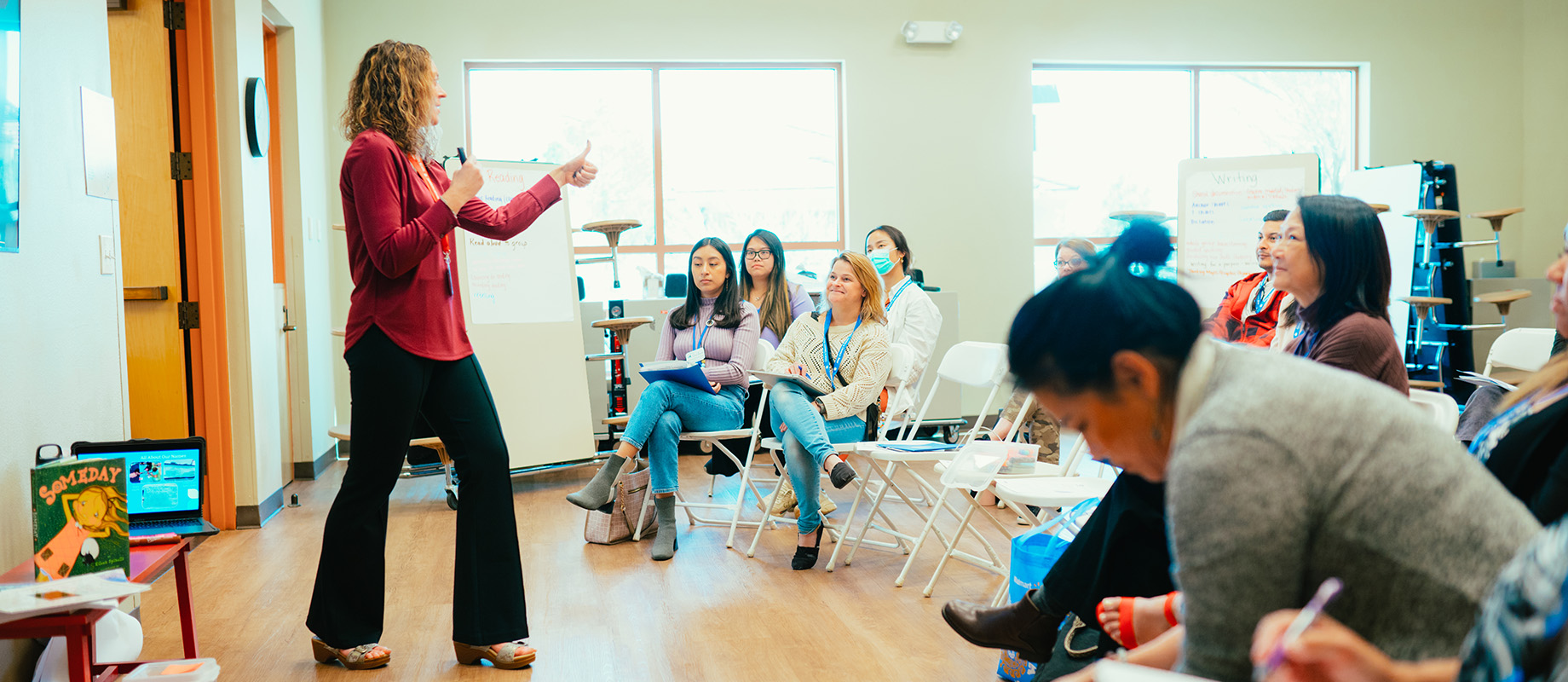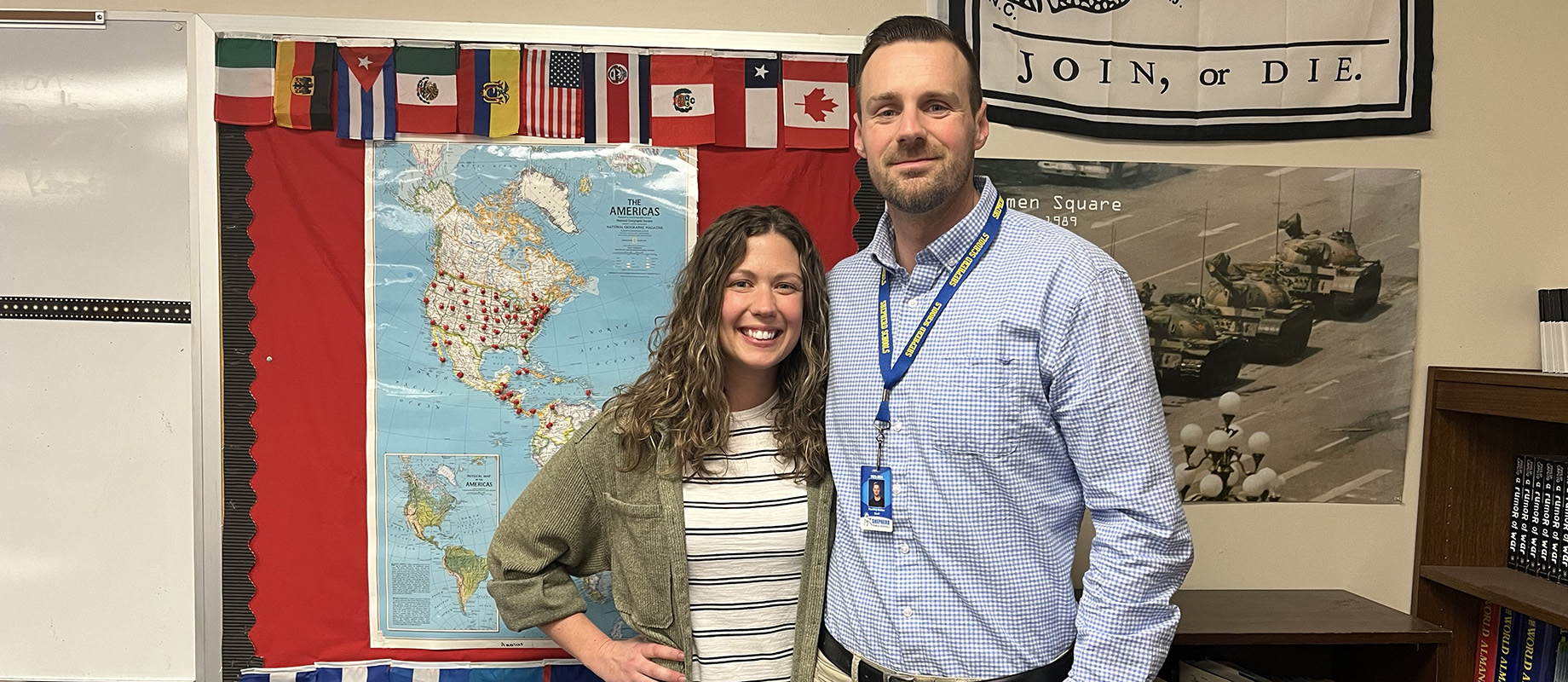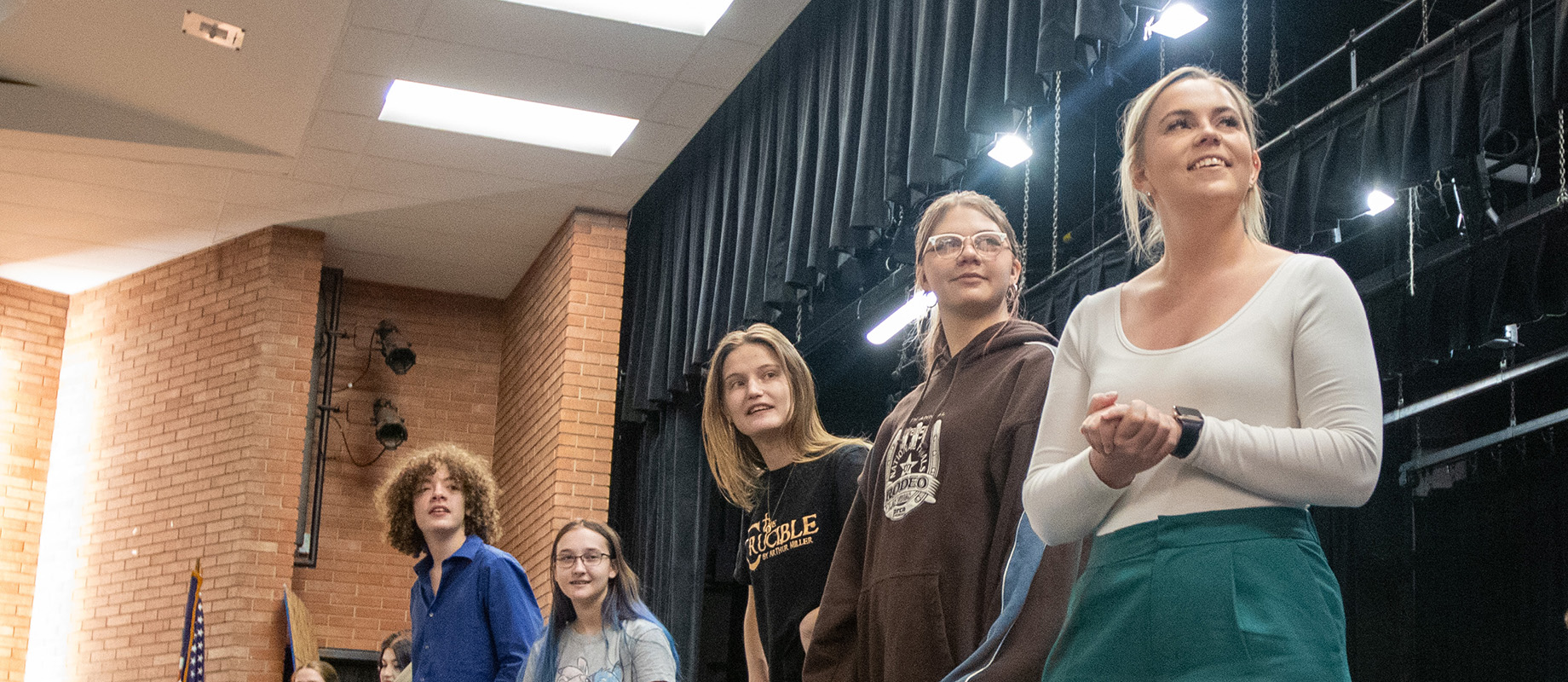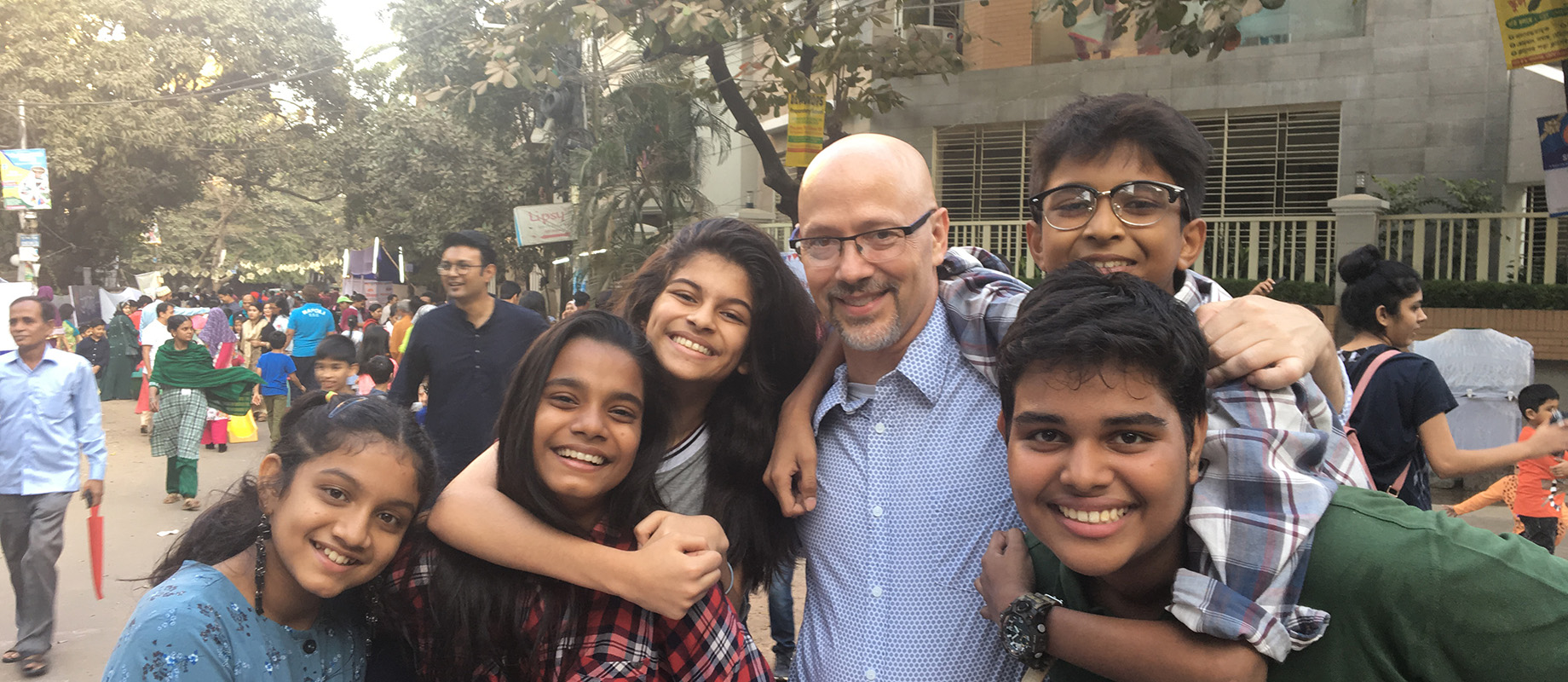Thriving in a Project Based World
Amanda Clark ’01 provides curricula counsel and conducts teacher workshops to foster the growth of project based learning nationwide.

Amanda Clark ’01 has distinguished herself as a class-room teacher, teaching consultant and coach, as well as an author and advocate for project based learning. Her teaching philosophy is based on a simple rationale. “We live in a project based world,” she says, “so why not bring project based learning experiences into the classroom?”
And she has done just that — through her early career as an elementary school teacher and today as a national faculty member and senior professional learning designer for PBLWorks.
Clark’s educational views and methods are based on the principles of constructivism — where people “actively construct or make their own knowledge”— and learner-centered practices that comprised her experiences at Simpson. Through her coursework, classroom placements, and a May Term studying education in New Zealand, Clark says Simpson provided a firm foundation and practical preparation to help her thrive as an educator.
“The courses were meaningful and relevant, and we had opportunities to engage in work that mirrored what teachers actually do,” said Clark, who also holds a master’s degree and doctorate in education from Drake University. “Simpson helped me discover what I was passionate about, how I wanted to show up as a teacher, how to make decisions based on doing what is best for kids, and how to be a lead learner.”
Learning to Teach Downtown
While at Simpson, Clark completed a practicum and student teaching experience at the Downtown School in Des Moines for elementary students, one of the early innovators in project based learning (PBL) pedagogy. In PBL, teachers work with their students to create engaging projects that help them apply theoretical knowledge as they gain practice in solving real-world problems.
Acquiring PBL insights and skills as a student teacher, Clark continued at the Downtown School as a classroom teacher and instructional coach for 16 years. Along the way, she became a fervent believer in the profound value of PBL.
“I believe project based learning has the power to change the life trajectory for all students,” said Clark. “A great project engages students in learning that is meaningful, long-lasting, and relevant to their lives and futures. This transformational pedagogy can transform students’ educational experiences and set them on a path for whatever is next — college, career, or life.”
Employing PBL challenged Clark to be imaginative and resourceful in connecting with students — always striving to keep learning fresh and fun. Consider, for example, studying trees. One year, the project with her students included a field trip to a nature center to learn from a naturalist about color change in leaves; a group hike to learn how to identify trees by leaf type and bark; a visit to a family farm to see how sap becomes maple syrup; and a simulation experience where students took on the role of various parts inside the tree.
Clark says that kind of personal discovery experience over a sustained period of time illustrates the distinctive value of project based learning.
“We relied on experts, books, simulations and hands-on activities for learning. In the process, students learned so many important skills like collaboration, critical thinking and problem solving…that’s the 21st century skill set that they need. It’s about structuring a classroom around child development versus structuring it so tightly around the content.”
“I believe project based learning has the power to change the life trajectory for all students.”
Giving Students a Voice
Following her service at the Downtown School, Clark moved on to Central College for a five-year stint teaching future educators about the value of learner-centered education. For the last seven years, she has held a variety of consulting and leadership roles for PBLWorks, an organization dedicated to growing the capacity of educators to bring project based learning to their classrooms. As senior professional learning designer, she is responsible for leading the creation and revision of high-quality content to support diverse educators, leaders and school communities in implementing project based learning.
Clark says the vision of PBLWorks prioritizes supporting project based learning for minority and marginalized populations. Her workshops help teachers learn how to create projects that require a high level of cognitive demand and reflect an understanding of who their students are and what works for them. A big part of that, she says, is for teachers to be consistently intentional in giving their students a sense of “shared power.”
“We are all born with a voice,” said Clark. “Let’s let kids use their voice in school and let them make choices about their learning. I think the community and the culture that comes from learning in a space where you are empowered is exciting.”
Growing the PBL Movement
Winning over those who are skeptical about the feasibility of implementing PBL is an ongoing challenge for Clark. To address that skepticism, she coauthored a book with Sara Lev and Erin Starkey in 2020 entitled, “Implementing Project Based Learning in Early Childhood: Overcoming Misconceptions and Reaching Success.”
“There is a misconception that young kids can’t do project based learning,” said Clark. “Every chapter [of our book] unpacks different misconceptions that teachers might have because they argue, ’Those kids can’t read and write yet…they can’t get along. How are they going to do research?’ We redefine research in the book and teachers begin to see, ’Oh yeah, we can do this.’”
Sharing insights from their book, Clark and her coauthors Sara Lev and Erin Starkey recently held their first national conference on PBL, which attracted more than 80 educators from 11 states to participate in a two-day workshop. Clark hopes that many such conferences will follow as interest in PBL continues to grow.
She urges aspiring educators to be faithfully committed in employing a learner-centered approach to teaching, placing a priority emphasis on creating a genuine connection with each of their students.
“I would encourage pre-service educators to take the time to get to know their students and build relationships. It is absolutely essential to build a classroom culture for learning. When your students know that you believe in them, trust them, and respect them, they will show you kindness and respect in turn. Remember, you are teaching kids, not content or standards.”
Article Information
Published
August 9, 2024
Author
Roger Degerman
Department
Department of Teacher Education




